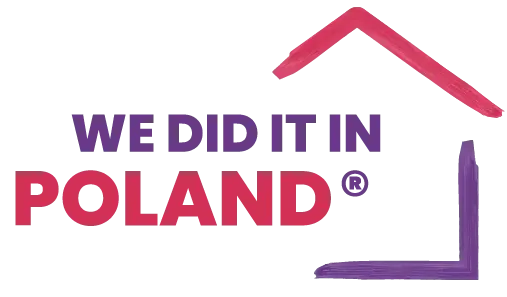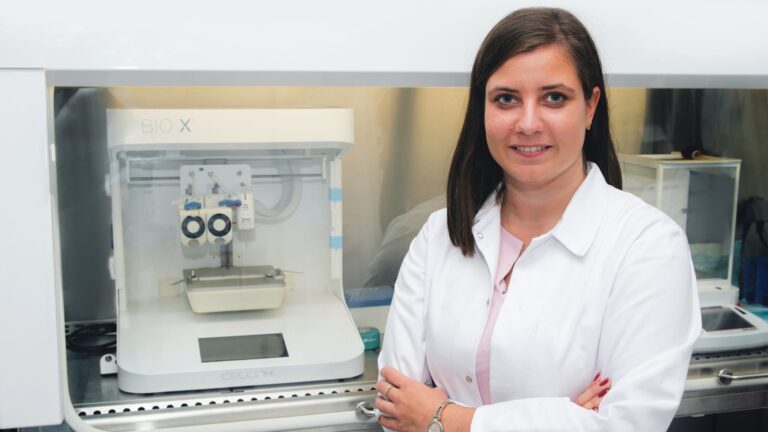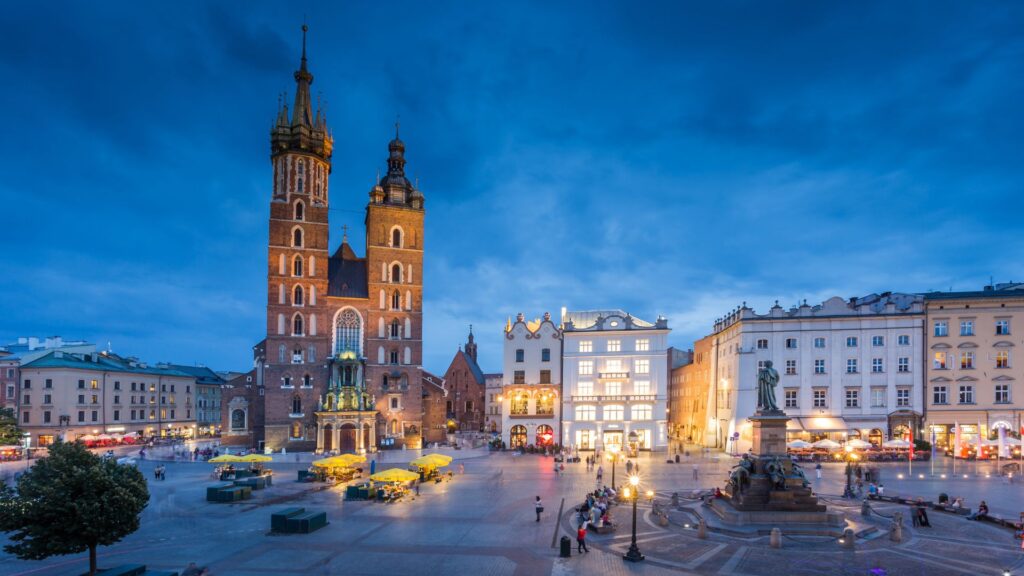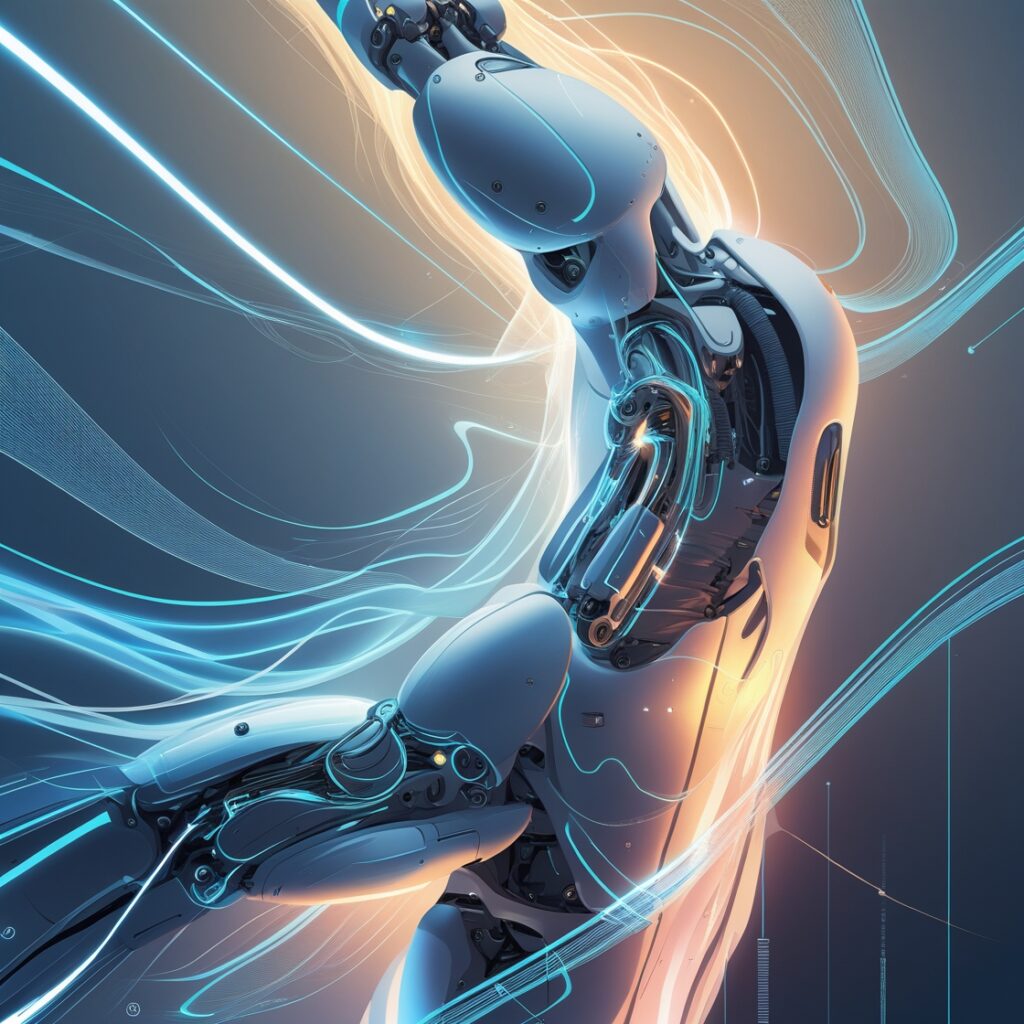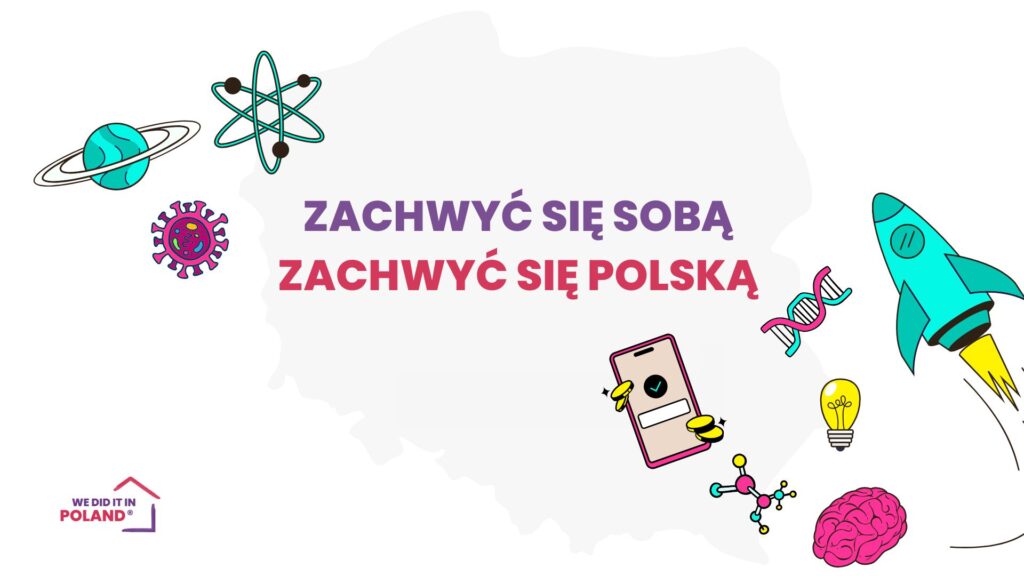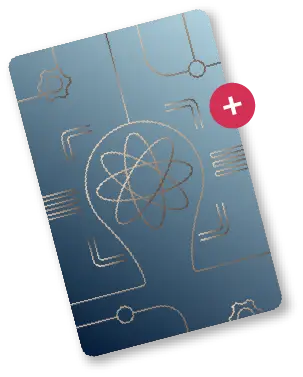Marta Klak, PhD, is one of those women who I sincerely hope our children will be learning about in schools around the world in a while. A biotechnologist, doctor of medical sciences, CTO of Polbionica S.A. A woman who, instead of going abroad, decided to build the technology of tomorrow here in Poland. She is co-creating a 3D printed bionic pancreas that could change the lives of thousands of patients. In the interview, she tells us about innovations that require courage and not necessarily having all the answers, talks about how she tames failure and why she dreams of a place where scientists could stop for a while.
What conviction did you have to overcome within yourself to create something truly innovative?
I had to overcome my belief that I wasn’t yet “ready” to create something truly groundbreaking and innovative. When I started working on projects at the intersection of biomedical engineering, 3D bioprinting and medicine, everything was new to me – from the language that was commonplace in this world of technology, to the courage to propose my own solutions in an environment full of authorities. At some point, I simply had to trust myself that even if I didn’t know everything yet, I had enough passion, determination and knowledge to participate in such an innovative project that could realistically change the lives of thousands of patients. It is always important to remember that innovation is not born in a comfort zone – we need to get out in front, take risks and believe that our ideas have value. Today I know that it is the combination of science, intuition and the courage to act that allows me to create solutions that only a few years ago seemed impossible, beyond my reach.
Was there a moment when you thought: “This will not work”? What happened then?
Of course, and more than once. In scientific work, such moments are inevitable, especially when the results are not what we expected, the protocols fail, and time is running out. The most difficult moments were (and are) when, despite the enormity of the work of the entire team, there were no immediate results and frustration often set in.
I remember the stage of one project when, after months of preparation, it became clear that it would be necessary to go back a few steps and completely redesign the approach. My first instinct was discouragement and the thought, “This won’t work, we won’t make it.” But then I go back to what drives me – to the goal, to the people it can help. And to the inner conviction that any failure is simply part of the process.
I redirect energy into action, look for new ways, consult with specialists, because it is never the work of one person. Scientific work is first and foremost a team game, and without the support and other people involved in what we do, we wouldn’t be where we are.
Do I understand correctly, then, that you have learned to tame “failures? And what is your relationship with success – does it drive you, paralyze you?
Over time, I have learned that both failure and success are just stages on our path. Failures no longer paralyze me, although let’s not hide – they are not pleasant. They used to be able to stop me for a moment. Today I treat them as feedback, a signal to improve something, to stop, to look at the issue from a different perspective, to look for a different approach. In research projects, failures are part of the creative process and you have to make friends with them.
Successes, on the other hand, give satisfaction, but also teach humility – because they are never exclusively “mine.” They are the result of the work of a whole team, many conversations, hours worked in the lab, as well as those spent on conceptual work. I try not to get too attached to either one or the other – because it’s a road and a development, often a very winding one.
Which skills, those “unmeasurable,” have proven to be the most important in building the company?
The most important things turned out to be those things that no one teaches in college. These are the courage to make decisions despite uncertainty, flexibility in action and the ability to turn doubt into motivation. But perhaps most important was the ability to build trust both within the team and in cooperation with partners from different worlds: science, business, industry or medicine. When building a company, you have to learn to function in constant change, especially if we are talking about biotech companies.
For me it was also important to be able to listen to people smarter than me, co-workers, critics. Thanks to this, many times mistakes were avoided or the right solution was found faster.
Without these “soft” competencies – though I prefer to say: “fundamental” – there would be neither the team, nor the company, nor the technologies we develop and implement today.
If you were to create a “survival manual for female innovators” – what would be in it first?
From my point of view, there are these 3 most important points:
- Don’t wait until everything is ready. Start acting before you feel fully “prepared.” Innovation is rarely born under ideal conditions. You have to act in spite of uncertainty, in spite of internal voices (and sometimes those outside) that say “it’s too soon,” “it’s too risky,” “it won’t work.” In my case, it was the step-by-step action, even when I didn’t have all the answers, that made it possible to build something real.
- Another key thing is to surround ourselves with people who not only believe in us and support us, but who can be honest – even when it’s uncomfortable. Because it is in the most difficult moments that trust, truth and relationships based on authenticity are most appreciated. Crises verify everything: ideas, strategies, but also the team and intentions. And it often turns out that it’s not successes that build foundations, but going through boundary situations together. A crisis does not have to be a signal to retreat – very often it is the very beginning of something new, better, more conscious.
- And one more thing: never lose your sense of purpose. Innovation without a purpose that really moves us burns out very quickly.
And the one thing you should absolutely ignore when building something groundbreaking?
It is absolutely necessary to ignore the voices that say “that’s not how it’s done” or “it won’t work because no one has done it before.” Innovation, by definition, requires breaking patterns, asking questions that others find uncomfortable. And looking for solutions where none yet exist. If we focus too much on what falls out, what is “safe” and what is accepted, we will never create anything truly groundbreaking. In our operations, we have repeatedly encountered the undermining of the sense of new ideas simply because they go beyond existing standards. If we then tried to conform to other people’s expectations, nothing would come of it. Sometimes you just have to mute the outside noise and trust yourself.
Imagine that you have no limitations – budget, technology, time. You can implement one crazy project – what would it be?
I would create an investment fund that supports Polish innovations – from early ideas to global commercialization. A fund that offers not only capital, but also access to laboratories, substantive and regulatory support, mentoring and a network of international partners. So that scientists don’t have to leave Poland with breakthroughs, just because they don’t have the conditions here to develop their ideas.
We have great potential in Poland: great people, innovative ideas and great determination. But we still lack systemic support to really develop and protect these solutions. Such a fund would be a chance to keep innovation in the country and build real value in us. And most importantly, it would allow us to stand on a par with the most dynamic innovation centers in the world. And all this on the lines of working together as partners and leaders who are setting directions in modern medicine and technology.
If I could go one step further and create something truly unique, without budgetary, technological or time constraints – it would be a place for people of science and innovation who work at a tremendous pace every day, under pressure of deadlines, responsibilities and expectations. I envision it somewhere in Spain – between the ocean and the mountains – as a space for recovery, reflection and creative exchange. It would not be a typical research center or a classic spa, but a place where one can stop for a while, talk without an agenda, share experiences, ask questions that often go unspoken in daily work. I believe that it is in such conditions – restoring calm, focus and meaning – that the most groundbreaking ideas are born. Innovation needs not only technology, but also time, relationships and space for deeper reflection. And this is the hardest to find in the world of science today.
